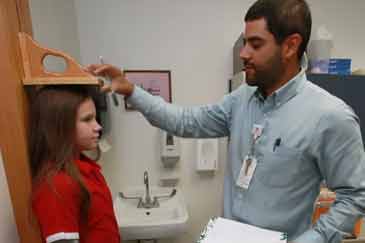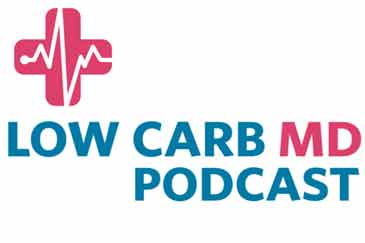Improving Metabolic health
Continuing the momentum of moving away from outdated medical practices to patient-driven care led by a registered dietitian that is collaborative, comprehensive, functional, and personalized, is essential. By improving your symptoms and treating the root cause of the problem, you are addressing one of the four deadly metabolic conditions affecting the majority of adults and children in the United States and around the world. This is driven by an uneven distribution of fat and muscle in our bodies, conditions that are not just a result of aging, but primarily of poor metabolic health. Improving metabolic health can be achieved at any time and, in many cases, drastically improve and put related diseases into remission.

Improving metabolic health starts with increasing movement in our daily lives.
Improving metabolic health starts with increasing movement in our daily lives. Moreover, how we fuel our bodies nutritionally must be optimized on an individual basis. Often, due to the designs of our current society, many of us have to obey certain structures that contribute to poor metabolic health, and must keep pushing forward and against all the resistance in the world to try to overcome challenges to a healthy lifestyle. This drive not only helps you reach your health goals but also sustains and improves them. This is the true essence of optimized metabolic health, a lifelong journey that cannot be driven solely by doctors or providers who often have less than 7 cumulative hours of nutrition education during their medical school or residency unless they dedicate their careers to studying nutrition.
In settings where nutritional care or care for metabolic-related conditions such as overweight, obesity, prediabetes, diabetes, fatty liver, and certain cancers is received, the approach is often to prescribe medications followed by increasing doses and adding more medications. However, this practice often proves ineffective, leading to improper prescriptions and, most importantly, never addressing the root cause.
Who else can you turn to? Personal trainers, exercise specialists, or physical therapists are great, but this is only part of the necessary application of preventive medicine. This is still not a complete approach, as while it covers some necessary changes, in many instances, they may not have the training or background in nutrition science from its most fundamental form to the most extreme situations in a hospital setting. This comprehensive, collaborative approach must include a qualified person who can guide or instruct you on how to move properly and help set a plan and develop skills to engage in ongoing physical activity or exercise, whether through one-on-one training sessions, group settings, or a combination of both. With telehealth and virtual connections, there are now more opportunities to connect across the nation and the globe to support each other every step of the way.
If you can participate in in-person group classes, take advantage of those days and that chapter of your life. There are online live group classes and challenges that people can take on at home as a part of group and in a community. There are also self-paced virtual exercise programs available for free or for a small purchase. I personally have enjoyed Onnit’s exercise programs and equipment, specifically the club workout. I purchased a set of Clubs when my wife and I started these types of workouts that we supplemented with an Olympic platform and weight set. I purchased two 10 lb. clubs and one 25 lb. club. Personally, I love these clubs, and they have helped me improve my range of motion and grip strength. There are some great programs, including the mace workout program and some exercise programs that don’t require any equipment. They have levels of executing the exercises depending on your skill level and strength. This is just a personal example, but there are many more.

What is a nutritionist?
What about a Nutritionist? First off, what is a nutritionist? A nutritionist has a broad application with no formal or designated standard definition. For this reason, a nutritionist can vary from a medical Doctor in Human Nutrition, such as Dr. Gabriel Lyon and Dr. Donald Layman, to someone who may be certified under some organization. The issue is that there is no single governing body and no set standards of educational preparation or application of nutrition care. A nutritionist can be someone who took months or weeks, days or hours to receive some type of nutrition certification, if they even have one. Or people may simply say they are nutrition experts because they have found the “secret sauce” that worked for them and now claim to help people reach easy weight loss, reverse diabetes, or whatever claim they want to make. So really, any health influencer can take on the title of nutritionist. It is like buying supplements that are not verified by an outside source and checked for impurities and contaminants. You want your supplement, food, and nutrition expert to be verified and of the highest quality. This is what a Registered Dietitian is.
What is a Registered Dietitian?
What is a Registered Dietitian? A Dietitian is a Licensed and Registered Nutrition Professional. One who works to help people lose weight and understands metabolic health from its root to its most extreme cases seen in hospitals and medical clinics. A Licensed Dietitian is an educationally prepared nutrition clinician who has undertaken a comprehensive educational path set by a governing body of credentialed professionals. This includes a Bachelor’s, Master’s, or Ph.D. in the study of Human Nutrition and, many times, Food Science. The coursework is a comprehensive, rigorous curriculum that includes not only the study and application of organic and biochemistry, anatomy and physiology, microbiology, food science, counseling, statistics, business accounting, and management, but also covers everything related to nutrition, dietetics, including medical nutrition therapy and community nutrition, and food management.
While completing an educational degree, sustaining a high GPA score is critical to be selected for a Nutrition Dietetics Internship, a requirement for the Registration of a Dietitian. This varies from months to up to two years when combined with a higher education degree. Dietetic interns have to successfully complete over 1000 practice hours in various settings, including hospitals, clinics, long-term care facilities, schools, sports teams, health facilities, and various specialties. I had the opportunity to participate in a clinical rotation with Seattle Children’s Hospital, where I was first introduced to ketogenic therapies to treat children with intractable epilepsy and other neurological conditions. More to follow on that in another blog. ‘
A Licensed Dietitian is an educationally prepared nutrition clinician who has undertaken a comprehensive educational path set by a governing body of credentialed professionals.

After successfully completing practice hours and the required competencies of skills, a dietetic intern can take the accreditation exam which takes 4 hours to complete and is very comprehensive and detailed. A Registered Dietitian will be able to approach care in a comprehensive way using evidence-based practice that has been trialed and tested. In this realm, one can specialize, such as a specialty of board-certified diabetes specialist. A Dietitian who is also a diabetes specialist will help you treat most metabolic disorders effectively and tackle them at the root.
In my practice, I provide my clients with the tools and skills that I have now learned and experienced for over 12 years. Together, we build plans and set goals that are approached strategically and tactically. These include the interpretation of detailed blood values and metabolic markers, a deep understanding of blood glucose optimization using health technology and one’s metabolic health, a review and prescription of supplements, an application of physical activity regimens, and tools to sustain optimized health and lives long-term.
So when you are ready to take the necessary steps and take on the knowledge and skills to optimize your metabolic health, find a nutrition expert who is a Registered Dietitian. We are your partners in health.
Happy Registered Dietitian Day to all my fellow RDs! Thank you for your dedication to improving lives through nutrition and metabolic health expertise










